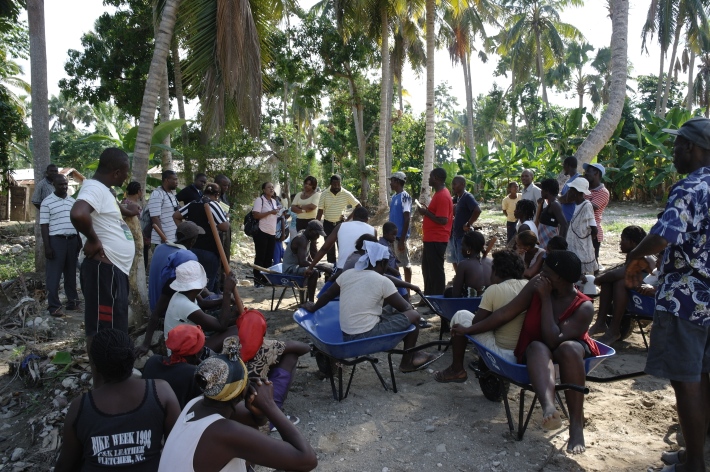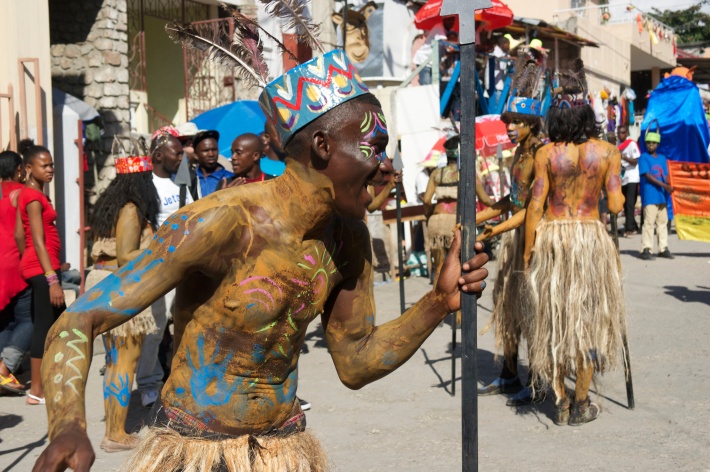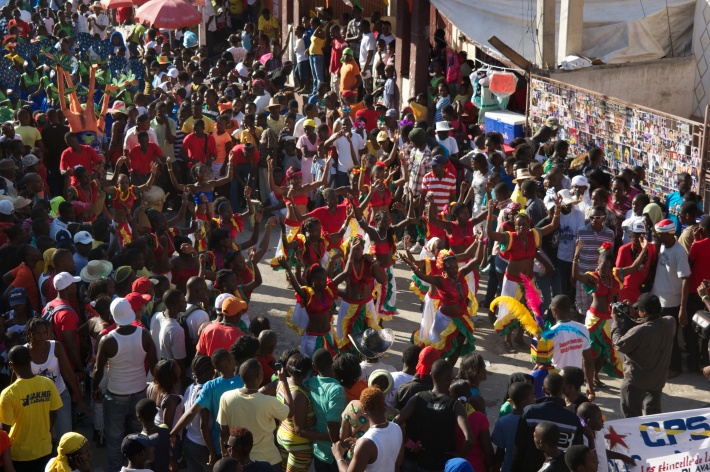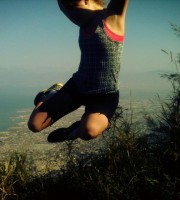Writing from a heated apartment building in -4 Connecticut, looking out the window at the 3 feet of snow covering the roads, it is hard to believe that on Tuesday I was in 35 degrees heat farewelling my colleagues in Haiti. Here’s a little summary of my final month in the Caribbean.
Mid-January saw the concept note for a new project finalised and sent off to the regional office for approval. Central to the project was the strengthening of school systems to help prevent incidents of gender-based violence and generating a safer school environment to improve girls’ attendance levels. This includes teacher-training programs that focus on amending school curriculum to include gender equality and reproductive health modules, afterschool mentoring and leadership sessions, life skills sessions for schoolgirls and a scholarship program for the final 3 years of high school for top achievers.
Local schools in Plan’s areas of operation will be the first target beneficiaries of the program, with the idea of expanding the program after the first 12-month pilot project to other partner local community and youth groups. One potential beneficiary that the participation program manager and I looked into was the young women in the female prison in Petionville. Our security manager, a former Police Unit trainer at the Police Academy, swiftly facilitated a visit to the cells.
Nothing could quite prepare me for what I saw. The cells were filthy and overcrowded: with around 12 women per 3 x 3m cell, meaning not enough space for each person to comfortably lie flat (there are no beds). All of the cells were open to allow the delegated inmate to fetch water from nearby containers (bidons) as there was not enough space in the cell for these.
My colleague and I felt incongruous to the extreme. Faces looked up from behind the bars and stared blankly through us. Most were silent, except for one lady who screamed out in Creole, “You whites keep visiting, you see our suffering and yet nothing changes for us” which struck a chord.
The cell for pregnant women, babies and also, shockingly, sick women, was most confronting. There were 3 beds for 9 women and 4 babies; the other 5 were heavily pregnant. The babies were no older than 2 months, the maximum time they will spend with their mothers before mandatorily being taken to an orphanage. I attempted in my best Creole to ask the mothers how long they had been in prison, to ascertain whether they had fallen pregnant in prison, but responses were difficult to follow. My security manager assured me that this occurs.
Deeply affected and struck for words we headed for the car and agreed that the couple of cells of girls under 18 would be good potential program participants in the new project.
Wrapping up my final couple of weeks in Haiti: a total of 151 participants attended the Gender Equality Training day representing each of our 3 program unit offices. Many interviews with managerial, field and support staff provided me with ample data to analyse and include in my final report, Gender Equality Self-Assessment Synthesis for Plan Haiti. This gave me the wonderful opportunity to see much of the country, including a trip on a small 15-seater plane across the barren mountain ranges that divide Port-au-Prince and Cap Haitian. My colleagues and I ate fresh lobster on the side of a beach near a Plan supported community and visited the old fort used to defend foreign invaders in the north during the 19th Century.

(Off to work for two days in the North East of Haiti, Fort-Liberté)

(Plan-sponsored community review of post-Sandy farming equipment handed out, near Jacmel).
Last hurrah would be the carnival in Jacmel. Two days of indulging the senses with sounds, smells, tastes, and sights of the masks, costumes and bands combined in a street parade to celebrate Haitian culture and history. It was somewhat of a contrast with the prior week’s visit to the prison and the destitute state of the inmates and a struggling rural community.
That’s probably the best way to describe Haiti: A country of contrasts. Where the immaculately dressed wealthy drive around in Porsches and control what little capital the country produces, whilst the majority live in makeshift housing with crumbling concrete sides, lucky to control a paltry $5, the average daily income.
I’d like to take this opportunity to thank the Castan Centre for providing me with the most incredible experience and opportunity to spend this time in Haiti.
It has been truly unforgettable.
As they say in Haiti, “Mesi ampil”, (literally: thankyou amply).

(Carnival Costumes: Traditional Taino people, a race of people entirely extinct following Spanish invasion in Hispaniola)

(Jacmel Carnival women’s dance group take to the street)
